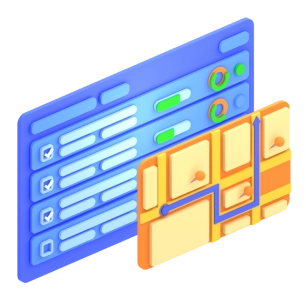The possibilities of GPS are limited only by imagination.
When GPS was invented by the US Department of Defense for its own use, nobody envisioned there would be so many applications of it. From saving lives to improving business processes, GPS technology is widely used today across many industries.
How is GPS used today?
We share different GPS uses in detail.
1. Driver Management and Safety
A commercial GPS tracker helps you track your vehicles and drivers in real-time. Thus, if a driver deviates from the route you have planned, make personal stops, take longer breaks or slack off, you’ll know about it as it happens and can take corrective measures to ensure your drivers stick to their designated routes.
You can even use the GPS tracker to analyze your drivers’ performance and reward or train them accordingly to increase efficiency.
Vehicle tracking software plays a crucial role in ensuring driver safety as well by helping you keep a check on your drivers’ aggressive driving practices. For example, you can track harsh braking, sudden acceleration, and tailgating.
Also, the best GPS trackers come with a speed alert that shows you a driver’s speed in real-time. So, if any driver speeds, you’ll immediately know and can communicate with the driver to slow down and follow safe driving practices before things get out of hand. In fact, driving within the speed limit will also greatly help you save on fuel expenses.
There are many other benefits of GPS tracking systems, such as :
- Protecting vehicles against theft
- Improving customers’ satisfaction
- Avoiding excessive idling
- Saving on insurance premiums
- Route optimization
Want to learn more about GPS tracking? Read what GPS tracking is, how GPS tracking works, and types of GPS systems.
2. Preventing Train Crashes
Based on GPS technology, the positive train control (PTC) system tracks the location and distance of running trains, speeds, railroad traffic, and the condition and placement of tracks.
When the system calculates that a crash may occur, such as when another train comes too close for comfort, it automatically brings the train to an emergency stop. PTC will also stop a train from moving onto a track that is not correctly positioned.
Want To See For Yourself How Route4Me Can Boost Your Profits?

3. Military Applications
GPS has become an indispensable asset for the military. GPS technology enables long-range missiles to hit their targets accurately and keeps the missiles on course, even when they encounter strong winds or other weather fluctuations that would otherwise have diverted them from their intended path.
Without GPS, it would be almost impossible to know if a missile will land on the specified targets.
4. Flying Planes
The use of GPS technology in aviation has made flying considerably safer. Planes use it to find their routes in the sky and air traffic controllers use it to track a plane’s movement and route.
Without a GPS navigation system, it would be very difficult to track and coordinate planes. Understanding where planes are prevents plane-to-plane, plane-to-mountain, or plane-to-building collisions.
Also, in zero visibility conditions, GPS applications help pilots navigate their planes, especially while landing.
5. Securing the Seas
GPS technology allows for efficient and safe navigation of ships. The satellite-based system prevents mariners from losing their way mid-sea or getting into unfortunate situations like running out of fuel.
Moreover, advanced GPS applications can track structures on the water, including tracking their direction, speed, and proximity.
6. Search and Rescue
In case you are lost or encounter an accident in an isolated area and require immediate emergency services, you can call preprogrammed emergency numbers on your smartphone. With the help of GPS technology, emergency personnel will be able to trace your current location quite easily.
Wrapping Up
Many industries and businesses are using GPS systems to make their operations more productive, safer, and easier. And, the returns justify the investment.
So, how do you plan to use GPS technology in your organization? Do you have any questions about the different uses of GPS?
Want To See For Yourself How Route4Me Can Boost Your Profits?
